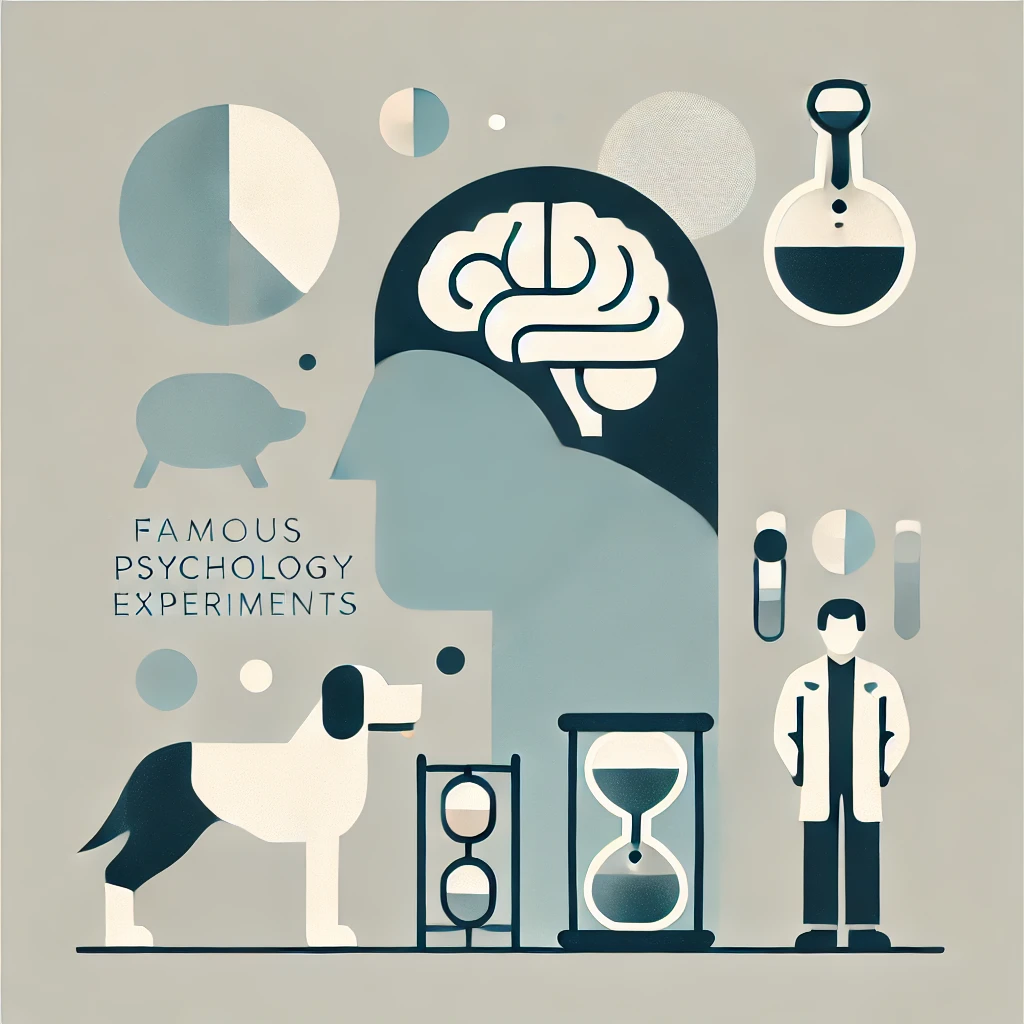What makes us tick? What shapes our behavior, our fears, and our thoughts? Psychology holds the answers—or at least some of them. Through experiments that stretch the boundaries of understanding, researchers have uncovered truths about the human mind that amaze and unsettle us.
Some experiments revealed truths that forever changed our understanding of human nature. Others challenged ethical lines and left scars on participants. Regardless, each has contributed to the tapestry of psychological knowledge. Today, we delve into some of the most famous psychology experiments, explore fascinating ideas, and inspire students to explore this dynamic field.
Let’s embark on a journey to uncover the secrets of the human mind.
Famous and Influential Psychology Experiments
Bold and inventive experiments have often driven psychology’s progress. Here are some of the most iconic studies that shaped the field:
The Stanford Prison Experiment
In a simulated prison, ordinary college students were divided into “guards” and “prisoners.” Within days, the guards began abusing their authority, subjecting the prisoners to verbal and psychological torment. The experiment ended prematurely due to the distress it caused. It revealed that power and their environment could corrupt even well-meaning individuals.
What we learned: Social roles and situational forces can dramatically influence behavior, often with shocking results.
The Milgram Experiment
This study sought to understand obedience. Participants, believing they were assisting in a learning experiment, were instructed to administer increasingly severe electric shocks to a “learner” when they answered questions incorrectly. Though the shocks were fake, participants didn’t know this, and many obeyed authority figures even when they thought they were causing immense pain.
What we learned: People are surprisingly willing to follow orders, even when it conflicts with their moral compass.
The Little Albert Experiment
In this controversial study, a baby was conditioned to fear furry objects by associating them with frightening noises. Though groundbreaking in demonstrating how fears are learned, the experiment left the child with lasting psychological harm.
What we learned: Emotional responses, including fears, can be conditioned through experience.
The Bobo Doll Experiment
Children watched adults either violently attack a toy doll or play with it calmly. When left alone, those who saw aggressive behavior imitated it, hitting the doll with increased intensity.
What we learned: Behavior, especially aggression, can be understood by observing others.
The Asch Conformity Study
Participants were asked to choose the longest line from a set. When actors in the group gave the wrong answer, many participants followed suit despite knowing it was incorrect.
What we learned: Social pressure often overrides individual judgment, as people tend to conform to group norms.
Interesting Psychology Topics
The impact of these experiments reaches far beyond their time. They continue to shape our understanding of behavior and inspire new lines of inquiry in modern psychology:
- Ethics Matter
Many of the experiments above sparked debates about the ethical treatment of participants. Today, strict guidelines ensure that research protects the dignity and well-being of those involved, balancing the quest for knowledge with humanity. - Behavior in Daily Life
- The findings of studies like the Bobo Doll Experiment influence how we address children’s exposure to media violence.
- Research on conformity explains everyday behaviors, like why people follow trends or alter their opinions in group settings.
- Mental Health Applications
Insights into learned helplessness or fear conditioning help develop therapies for anxiety, phobias, and depression. By understanding how behaviors and emotions form, psychologists craft interventions that heal and empower.
Psychology Research Ideas for Students
For those inspired by the discoveries of psychology, the field offers endless opportunities to explore fascinating questions. Here are some research ideas that are engaging and student-friendly:
- Does Color Affect Memory?
Investigate whether people remember words or images better when presented in specific colors. Does a bright red flashcard improve recall compared to a plain white one? - How Stress Spreads
Design an experiment to see if stress is contagious. For instance, have participants take a math test in the presence of a visibly stressed individual and compare their results to those of a control group. - Digital Tools vs. Traditional Study Methods
Compare students’ test performances after studying with online flashcards versus traditional textbooks. This can shed light on how technology influences learning habits. - Survey-Based Research
- Explore perceptions of therapy across different age groups or cultures.
- Examine how students’ views on mental health are shaped by social media exposure.
- Media Analysis
Analyze portrayals of psychological disorders in movies and television. What stereotypes are perpetuated, and how do they affect public perceptions of mental health?
These projects engage curious minds and contribute to a deeper understanding of the world around us.
Closing Thoughts
The human mind is endlessly complex, shaped by experiences, environments, and social dynamics. Psychology experiments offer glimpses into what makes us who we are. From the chilling lessons of the Stanford Prison Experiment to the enduring relevance of conformity studies, these experiments remind us of our strengths, vulnerabilities, and potential for growth.
As students, researchers, or simply curious individuals, the journey of understanding human behavior is as rewarding as it is enlightening. Whether replicating existing studies or carving new paths in research, psychology offers endless opportunities to uncover the mysteries of the mind.
By approaching this journey ethically and thoughtfully, we can continue to learn and make the world a better, more empathetic place. The study of psychology isn’t just about observing others—it’s about understanding ourselves.

